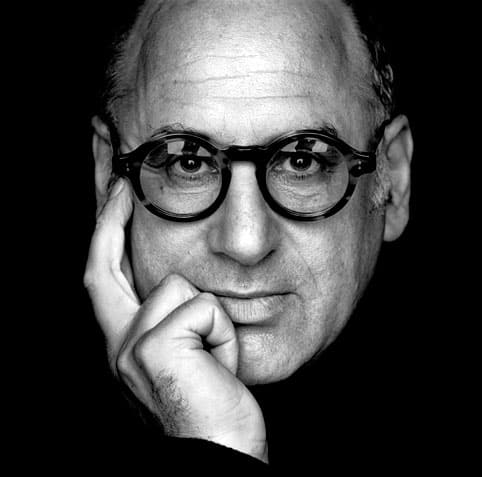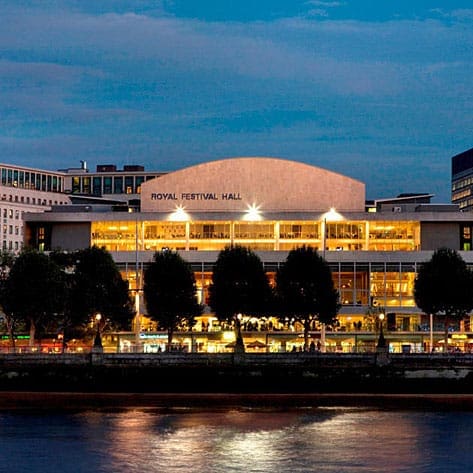Michael Nyman’s brand of broad-strokes baroque is almost as tiring to listen to as it is to play, but there was just enough variation in this unique programme dedicated entirely to his ‘rewritings’ of works by Purcell, Handel and Monteverdi, to make for an entertaining and surprising evening.
Michael Nyman is a deeply divisive figure. The common criticism leveled at other ‘minimalist’ composers (a term Nyman is widely believed to have introduced to music criticism) such as Steve Reich and Philip Glass that they are content merely to repeat themselves is, I believe, largely unfounded.
Nyman, however, openly and unapologetically states that every note of music he has composed can be traced back to an early experience, playing an aria from Mozart’s Don Giovanni at the piano in the style of Jerry Lee Lewis. Everything in Nyman’s canon is a different permutation of this classical-rock ‘n roll fusion. Heavy ground bass and insistent ostinatos in regular meter, alongside extremes of range and timbre, highly functional ‘classical’ harmony, and competing elements of romanticism and irony, are his hallmarks. Repetition on both a micro- and macro- level is King. Nyman’s instantly recognizable style has won the composer a significant number of equally passionate fans and detractors, the former of whom packed out the Royal Festival Hall tonight to see the Michael Nyman Band.
The programme began in predictable enough fashion with the Band (the rock connotations of the name are significant when we consider that Philip Glass has an ‘ensemble’ and Steve Reich had only ‘musicians’) blasting out four pieces from the soundtrack to Peter Greenaway’s 1983 film The Draughtsman’s Contract. The noise is extraordinary – a string quartet hacks away, whilst saxes and brass wail, and the piano left hand and bass guitar thump out huge basslines. The layout is idiosyncratic also: the band is bunched tight together on tiered seating, like a crowd at the composer’s beloved Loftus Road (Nyman dedicates his seminal book Experimental Music to QPR football club, and has even composed an anthem for them). These re-writings of music by Purcell are some of Nyman’s most famous pieces, and sound and look great in concert: string players shake out the R.S.I from lightspeed tremolandi in between pieces, Nyman sits with only his right cheek on the piano stool, such is his bias towards the piano’s low end.
The two cuts from A Zed and Two Noughts (1986) – another Greenaway film – were relatively low-key. There’s nothing wrong with the brooding ‘Prawn Watching’, or the melodramatic ‘Time Lapse’, which could almost pass for a Bond theme, but I wanted to hear the exuberant tempo (and even wilder tuning) of ‘Angelfish Decay’, or the rhythmic playfulness of ‘Bisocosis Populi’. Perhaps the players just needed a rest. Newish work The Musicologist Scores (another football reference?) is a good piece that is crying out for a recording, but ropey playing and fidgety audience members suggested an interval was needed by all. The thrill of hearing and seeing Nyman’s music had given way to fatigue, and a half-time drink and ice cream wouldn’t be enough for me to tolerate merely more of the same.
Thankfully, the second half had more variation and I had earplugs (the first time I’d found them necessary at a classical concert). After a somber, dignified ‘Memorial’ from The Cook, the Thief, his Wife and her Lover (1989) that grew gradually more raucous over a generous running length, we were treated to less well-known Nyman works, all based on music by relatively obscure, but influential, French baroque composer François Couperin. ‘Le Palais Royal’ from La Traversée de Paris (a 1989 exhibition in France to commemorate the bicentenary of the Revolution) shed the bass weight in favour of long, yearning dissonances in the mid and upper registers. ‘Come Unto these Yellow Sands’ from Peter Greenaway’s 1991 film Prospero’s Books featured additive rhythms not often heard in Nyman’s work and more likely to be found in post-Tehilim Steve Reich, or that of Louis Andriessen. The piece rides a rhythmic knife edge, and it was a treat to hear ‘classical’ musicians seriously versed in rhythm deal with this challenge with minimal fuss – the London Sinfonietta, for example, do many things exceptionally well, but I found they struggle with groove-centric work such as Reich’s 2×5, or even Clapping Music at the recent Radio Rewrite premiere. The last in Nyman’s Couperin trio was mistakenly billed ‘City of Turin’ from The Glare – a 2009 collaboration with singer David McAlmont – but was is in fact ‘Convening the Coven’ written for (but not used in) the soundtrack to 1998 rom-com Practical Magic. Again in additive meter, with chugging bari sax and piping piccolo, it doesn’t require knowledge that this was written for a Sandra Bullock film to realise this is pretty flimsy stuff: definitely different to the first half’s sensory overload, but certainly not better.
‘Water Dances’ from another Greenaway film – this time Making a Splash (1984), a documentary about synchronized swimming – is a brilliant set closer, with the strings performing a jig and the infectious bassline changed over time with anticipations appearing in unlikely places. The piece whips itself into a frenzy that had the kids in front of me jumping up and down on their seats screaming: quite probably a RFH first, and lovely to see. That would have been quite enough for me, but Nyman returned to the stage, this time with contralto Hilary Summers in tow. The encore was a tad too much for my tastes, with Summers sounding more Lloyds TSB advert than Meredith Monk, but it brought an ovation out of the rest of the audience.
Nyman is a difficult composer in a way quite different to the challenging music of the avant-garde. I find the lack of dynamics and insistent rhythmic nature of his music fatiguing, and I say this as a fan/producer of electronic dance music. He also seems a difficult person, having seen him dismiss questions from students sand lock horns with professors when he came to talk at our shared alma mater, King’s College London, where we both studied musicology. I can’t spend a huge amount of time in his company, but I enjoy the time I do; tonight was no exception.
words Thom Hosken






